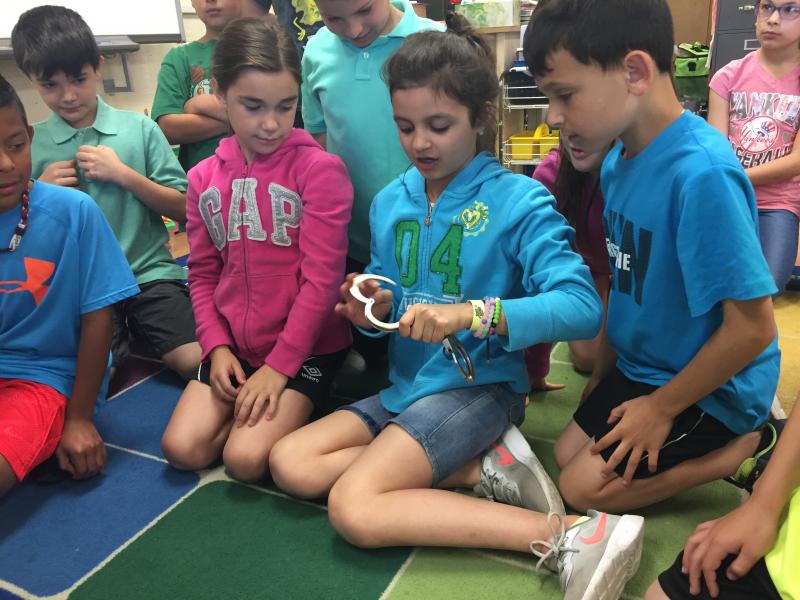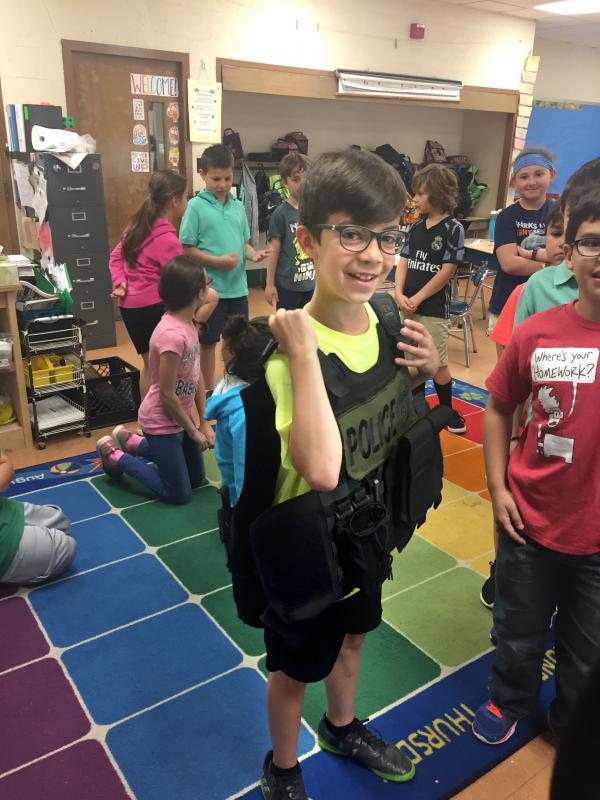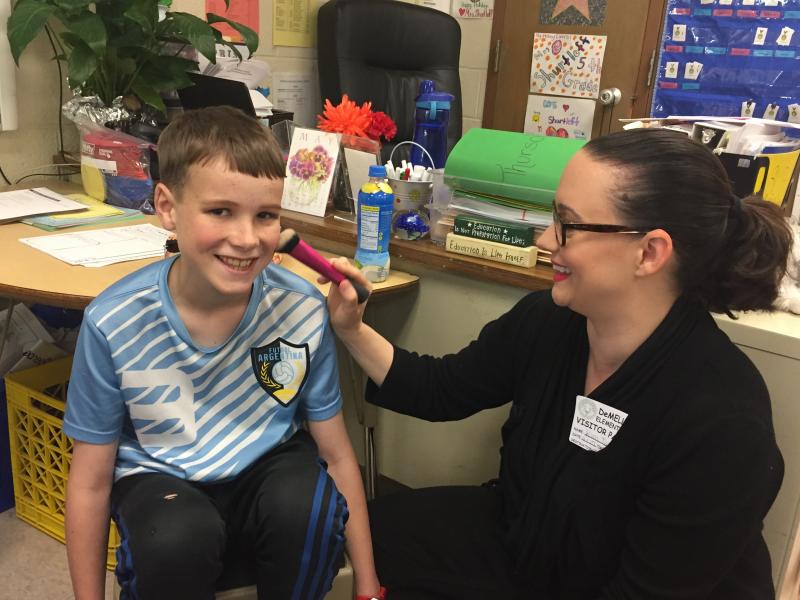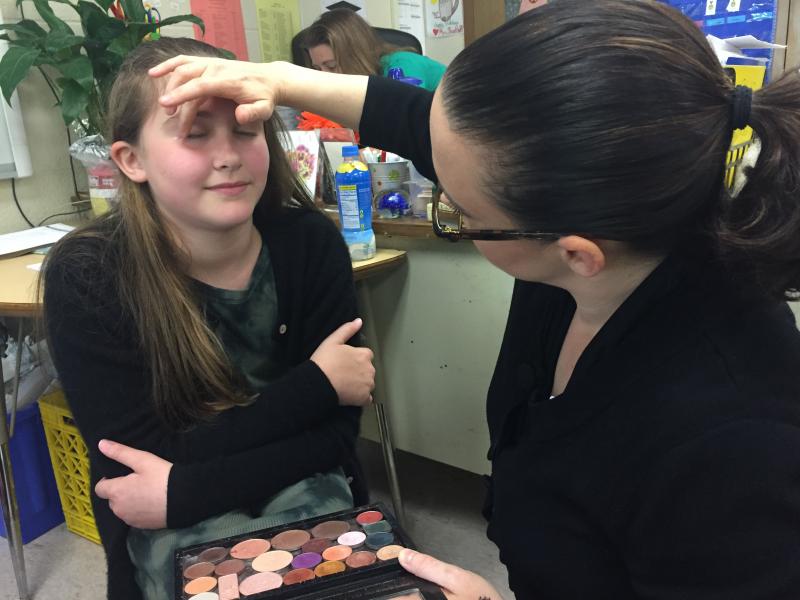DeMello students relate classroom to career with visiting professionals
If you asked 18 third graders if they've ever lied to their parents, what would they say?
Special Agent Jeff Hathaway received no response from Jasmine Olean’s third grade class. He explained that the application process for the Drug Enforcement Agency includes a polygraph test, along with physical and psychological testing.
"I have too, but I didn't lie about it," said Hathaway, who has spent 20 years with the DEA, and is now a Dartmouth resident with two children at DeMello.
Hathaway was one of several professionals visiting DeMello Elementary between May 30 and June 2 for Career Week. The visitors connected students' lessons to the work sphere, and introduced kids to various career paths.
“Every hour of fun is about eight hours of paperwork, just in case we need it for court later. So reading and writing are very important,” explained Hathaway.
That wasn’t the only message he passed on to the students, however. The 18-month application process for DEA candidates also includes a background check.
“They’re going to go to your teachers and ask, ‘Was Tyler a good student? Did you ever have any problems?’ Think about what you’re doing. If it doesn’t feel right, don’t do it,” continued Hathaway.
He then explained that if you pass all that, you’re given a gun, a badge, and credentials. Students tried on Hathaway’s 35-pound protective vest — which shields his vital organs from bullets — and lifted the ram used for breaking down doors. But the interest in Hathaway’s gun opened the conversation in a new direction.
“What do you do when you see a gun?” asked Hathaway. Students answered “don’t touch it,” “tell a grownup,” and “don’t use it as a toy.”
Hathaway agreed. “We do not touch guns ever. You could get hurt.”
The students did get to play with what Hathaway called a “bad guy fidget spinner,” a.k.a., handcuffs.
“Bad guys, when they’re put in handcuffs, they all cry. They realize they’re going to be in jail for a long time. They’re not going to be with their friends and family. And we take everything they own because it was bought with drug money,” said Hathaway.
Students asked about El Chapo and escaped prisoners, but came away with a few solid messages.
Student Annie O’Neil said she learned the importance of staying away from drugs unless they’re prescribed for health reasons. She also expressed interest in being a cop, along with a few other students.
Students also listed veterinarian, artist, paleontologist, professional athlete, meteorologist, novelist, surgeon, and actress among prospective career paths.
“They always talk about the subjects that are important and relate it [to the worksphere],” said Olean. DeMello has also welcomed an antiques dealer, an American Sign Language interpreter, a police sketch artist, and a philosopher.
In Erin Shurtleff’s fifth grade class, esthetician Kim Tapper showed students how to apply makeup, but not before she spoke to them about the importance of skin care and sunscreen.
Students laughed and enjoyed watching Tapper paint student volunteer Donovan Boyle’s lips a vibrant red, but for Shurtleff, the visit was very practical.
“It gives [students] a glimpse of different career paths, and it brings community members into the school,” she said. “There’s so many different jobs out there that they don’t know about.”
Eleven-year-old Braiden Norton had a slightly different takeaway. “Yesterday, we learned sign language. Today, I learned there was such a thing as ‘glitter makeup,’” he said.


















